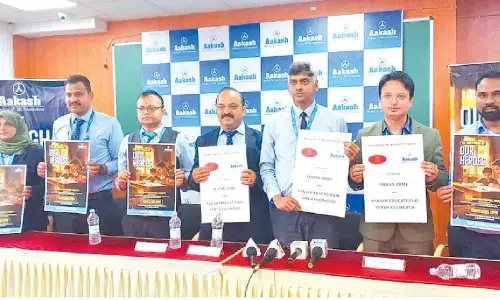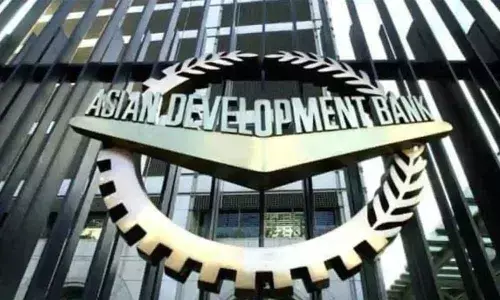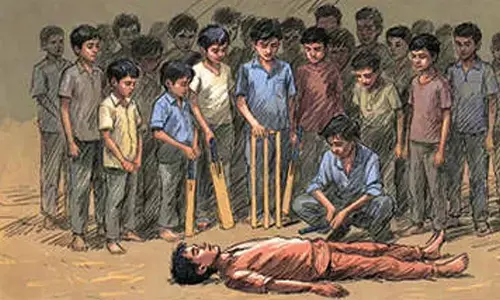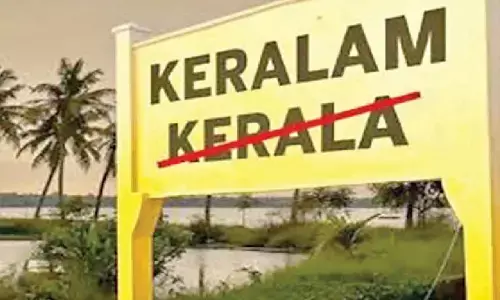Importance of being Nawaz Sharif

Kuldeep Nayar: Importance of Being Nawaz Sharif, Lobbies of the armed forces and maulvis were assured that Nawaz Sharif vented his annoyance in private while talking to Prime Minister Narendra Modi.
I FOLLOWED the visit of Prime Minister Nawaz Sharif to India from his arrival to the departure. I did not find any false note either in his observations or meetings. He did not mention Kashmir. Nor did he meet the separatists who are always keen to have talks with the Pakistani leaders, not the Indians. From all angles, it was a positive and constructive visit.
.jpg)
That Nawaz Sharif’s advisor Sartaj Aziz reignited the embers of bitter hostility by briefing in Pakistan on Kashmir and several other counts is not understandable. He had to indulge in rhetoric for domestic consumption. Lobbies of the armed forces and maulvis were assured that Nawaz Sharif vented his annoyance in private while talking to Prime Minister Narendra Modi.
Still I wish Sartaj Aziz had not done so because the meeting had changed the climate of opposition in India. Even the rightists in the country had conceded that a new chapter of equation had begun in the history of India and Pakistan relations. Sartaj Aziz, whatever his compulsions, did not have to be a hawk to take us all back to square one. Foreign Secretary Sujatha Singh’s statement may have queered the pitch, but Sartaj Aziz is not a bureaucrat and he should have kept India-Pakistan relations at a higher level.
Therefore, do not see a breakthrough in the stand that the two sides had taken from the time the two countries had parted company in August 1947. In fact, I have sensed more optimism on earlier meetings between the Prime Ministers on both sides. Nothing concrete has come out because the establishments in India and Pakistan are basically hostile to each other. No passage of time has lessened their influence or attitude.
Yet the relationship of love and hate smoulders all the time. People in the two countries yearn for friendship or at least normalcy. The meeting between Prime Ministers Modi and Sharif has once again evoked hope for better days. Once again, foreign secretaries of the two governments are to pinpoint what keeps the countries apart. If the past is any guide, the goodwill will not fructify into normal relations. The reason why I say so is the enmity which has been fostered in the minds of people.
It was to be seen and believed the enthusiasm with which the visit of Nawaz Sharif was awaited in India. The nation should have been engaged in Narendra Modi’s resounding victory or the decimation of the Congress party which has ruled India for several decades. Instead the attention was focused on Islamabad.
Four or five days between Modi’s unexpected invitation and acceptance by Sharif dominated the Indian media and the drawing rooms with discussions on whether the Pakistan Prime Minister would come to Delhi at all. And it was all positive. People wanted him to come and literally prayed that he would. That he had to bring round the armed forces and the extremist elements in his own country was conceded. But it was argued that his arrival would be an apt step to strengthen democratic ideas in Pakistan. Therefore, when he telephoned to say yes, a wave of relief swept through the country. Most newspapers made his acceptance as the first lead.
I recall how at the time of partition there was so much bloodshed—nearly 10 lakh people were massacred on both sides. Yet a few weeks later when I bought a few tapes of Noorjehan at Lahore, the shopkeeper refused to take money since I was from India. A similar treatment was meted out to the Pakistanis. The days of killing were only a few, an aberration of sort.
It is beyond me to make out why Pakistan has unilaterally ended the agreement to post two journalists from either country to cover the situation. Pakistan did not have its journalists in position for more than a year. I could have understood the reason if the two Indian journalists had violated any law or sent a dispatch which had hurt Pakistan’s sentiments. There was nothing like that. Regretfully, news agencies and correspondents from the West are free to report.
Prime Minister Nawaz Sharif’s visit to India took a similar zigzag path. Prime Minister Modi, considered a hawk, surprised even hardliners in both the countries when he invited all heads of SAARC nations. Nawaz Sharif was inclined to accept it. Yet the India-Pakistan animosity came in the way. The army and the extremists exerted so much pressure that the visit seemed abandoned. Ultimately, Sharif asserted himself to attend swearing-in ceremony. His was not only a gesture because after meeting Modi, Sharif said that a new chapter had begun in the history of the two countries.
The fear that Modi is anti-Muslim was allayed when the two met. Modi realises that he has to take the Muslims along to traverse the path of development, the slogan which has given him and his Bharatiya Janata Party a majority, 282 seats in a 543-member Lok Sabha. It is churlish on the part of Pakistan to question the credentials of a person whom the people of India have elected in fair and free polls. There are enough voices in India to force Modi not to go away from secularism; part of the basic structure of the Constitution that even parliament cannot change.
True, Modi’s party and its mentor, the RSS, are known for their Hindutva approach. Yet they would put the country in a big turmoil if they exerted pressure on Modi to build a temple where the Babri masjid stood or to tinker with Article 370 which constitutionally gives a special status to Jammu and Kashmir when it acceded to India. What kind of country Modi wants to build is the question. The cabinet he has constituted gives a message that he wants the different elements to feel that he will not discriminate against any segment of the society, religious or linguistic. The first heartening step of his government to appoint a Special Investigation Team (SIT) to unearth black money is a good omen. We should give him time to fulfill the aspirations of people he has aroused.











